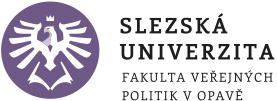Social Pathology and Prevention 2016, 2(1):47-58 | DOI: 10.25142/spp.2016.004
THE LOCAL STRATEGY FOR THE SUPPORT OF FAMILY LITERACY
- doc. PaedDr. Alica Petrasová, PhD., Faculty of Education, University of Prešov in Prešov, Department of Special Education, ul. 17 novembra 15, 080 16 Prešov, Slovak Republic, alica.petrasova@unipo.sk
The family literacy concept makes explicit what has been implicitly understood, and recognizes the family as an institution for education and learning and the role of parents as their children's first teachers. The starting point for the development of human resources within a culture is the family. Families provide an intergenerational transfer of language, thought, and values to the minds of their new-born infants and throughout the formative years of their children's lives. Families provide initial guidance in learning to use the cultural tools that will be valued and rewarded within the culture. Families interpret the culture for their children, and they mediate the understanding, use, and value placed on the cultural tools for learning and education, of which the capstone tools are language and literacy. The author presents the European partnership project Literacy Cubed - Focus on Roma Families. The programme was piloted in three countries: Montenegro, Romania and Slovakia from December 2013 to November 2015. Project LIT3 supports the reading and health literacy skills development of three generations: primary school children (aged 6-11), their parents/carers and their grandparents. The goal of Project LIT3 was to raise the attainment level of Roma children in general education. Non-governmental organization Orava Association for Democratic learning is the main coordinator and implementer of the project in Slovakia. We present the experiences of the project team with requesting and engaging of stakeholders of the Literacy Cubed - Focus on Roma families (LIT3) project in the city of Dolný Kubín (Slovakia) in the paper.
Klíčová slova: Roma family, family literacy - reading and health, children from socially disadvantaged backgrounds
Zveřejněno: 1. březen 2016 Zobrazit citaci
Reference
- About the Project. [online]. Accessed 7 November 2016. http://www.lit3-project.eu/about-the-project/.
- Act No. 245/2008 Coll. on education; changes and amendments to certain laws. [online]. http://www.minedu.sk/data/USERDATA/Legislativa/Zakony/2008_245.pdf.
- Carpentieri, J.D., Litster, J., & Mallows, D. (2015). Literacy Cubed Need Analysis Report. Brussel: European Commission.
- Kaleja, M. (2011). Romové a škola versus rodiče a žáci. [Roma and School Versus Parents and Pupils]. Ostrava: Faculty of Education, Ostrava University in Ostrava.
- Kaleja, M. (2014). Determinanty edukace sociálně vyloučených žáků z pohledu speciální pedagogiky. [Education Determinants of Socially Excluded Pupils of Primary Schools from the Perspective of Special Education]. Ostrava: Faculty of Education, Ostrava University in Ostrava.
- Kaleja, M. (2013). Determinanty hodnotových konstruktů ve vzdělávání romských žáků základních škol. [Determinants of the Valued Constructs in Education of Roma Pupils in Primary Schools]. Ostrava: Faculty of Education, Ostrava University in Ostrava.
- Kaleja, M. (2015). (Ne)připravený pedagog a žák z prostředí sociální exkluze. [Unprepared Teacher and Pupil from the Social Exclusion Environment]. Opava: Centre for Empirical Research, Faculty of Public Policies, Silesian University in Opava.
- Kolaříková, M. (2015). Dítě předškolního věku v prostředí sociální exkluze. [Preschool Child in Socially Excluded Environment]. Opava: Silesian University in Opava.
- Kovacs M. et al. (2015). The Shareholders Involving in the Development and Implementation of Effective Policy of Family Literacy. Dolný Kubín: Vrábeľ Printer.
- Literacy Cubed - Focus on Roma Families project. [online]. http://discovery.ucl.ac.uk/1475761/.
- Padak, N., & Rasinski, T. (2013). Family Literacy Programs: Who Benefits? Ohio: Literacy Resource Center Kent State University.
- Petrasová, A., & Porubský, Š. (2013). The Educational Paths of Roma Pupils from Socially Disadvantaged Backgrounds. Bratislava: OSF.
- Petrasová, A. (2011). The content and Process of Education. In Rafael V. (Ed.), Answers to Questions on (de)Segregation of Roma Students in Slovak Education System (pp. 105-118). Bratislava: Open Society Foundation.
- PISA SK 2003, 2006, 2009, 2012 and 2015 National Report, Bratislava: ŠPÚ.
- The Europe 2020 Strategy. [online]. Accessed 15 November 2016. http://www.europskaunia.sk/strategia-europa-2020.
- Zezulková, E. (2015). Vybrané faktory komunikační kompetence žáků v primárním vzdělávání. [Selected Factors of Communication Competence of Pupils in Primary Education]. Opava: Silesian University in Opava.
Tento článek je publikován v režimu tzv. otevřeného přístupu k vědeckým informacím (Open Access), který je distribuován pod licencí Creative Commons Attribution 4.0 International License (CC BY 4.0), která umožňuje distribuci, reprodukci a změny, pokud je původní dílo řádně ocitováno. Není povolena distribuce, reprodukce nebo změna, která není v souladu s podmínkami této licence.



